On vacation in Brittany last year, the neighbor’s roosters would cock-a-doodle-do at the crack of dawn, and one morning around 5 a.m., I learned that French animal sounds are not the same in English (makes sense since French is a different language and all). When I yelled out the window, “STOP COCK-A-DOODLE-DOO-ING AND LET ME SLEEP!!!!” Tom was like, “Cock-a-WHAT?” I said it was the noise that roosters made and he laughed and told me not in French!! So read on for this rooster-inspired post all about animal sounds in French and how they differ from English!
Go check out the French animal sounds {with audio}!
French animal sounds
Some animal sounds in French are more or less the same in English (just spelled differently), like the dog, cat and cow, but the interpretation of others has provided lots of entertainment for me when I ask Tom to make a duck noise, frog noise, etc. (for the purpose of this post, of course).
By no means is this an all-inclusive list — it’s just a roundup of the animal sounds in French that I find the most entertaining. A big thanks goes out to Tom for recording the audio.
That’s my little friend from Key West above. He’s a beauty, isn’t he? Listen below to the French rooster sound.
Rooster
English: Cock-a-doodle-do
French: Co-co-rico
Bird
English: Chirp chirp or tweet tweet
French: Piou-piou (or kwee-kwee)
Frog
English: Ribbit
French: Koah-koah (or croa croa written in French)
Hen
English: Cluck cluck
French: Cot-cot-cot
Duck
English: Quack quack
French: Quah-quah (note: no hard “k” sound at end, written coin coin in French)
***
Do any of these French animal sounds surprise you? What noises do animals make in your native language?
If you’d like to check out another post with audio, this post on the strange noises French people make was a hit!
Pin me:
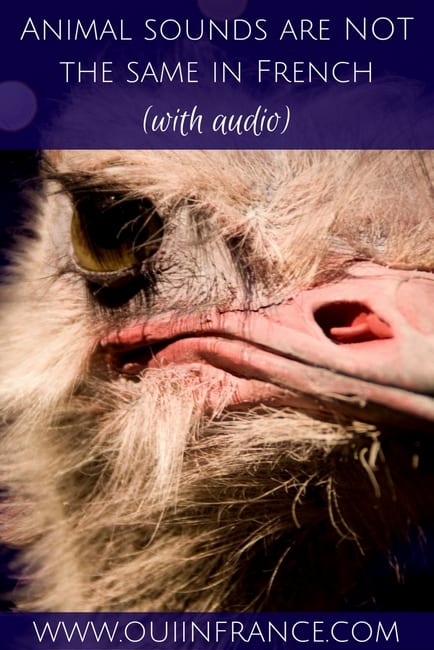
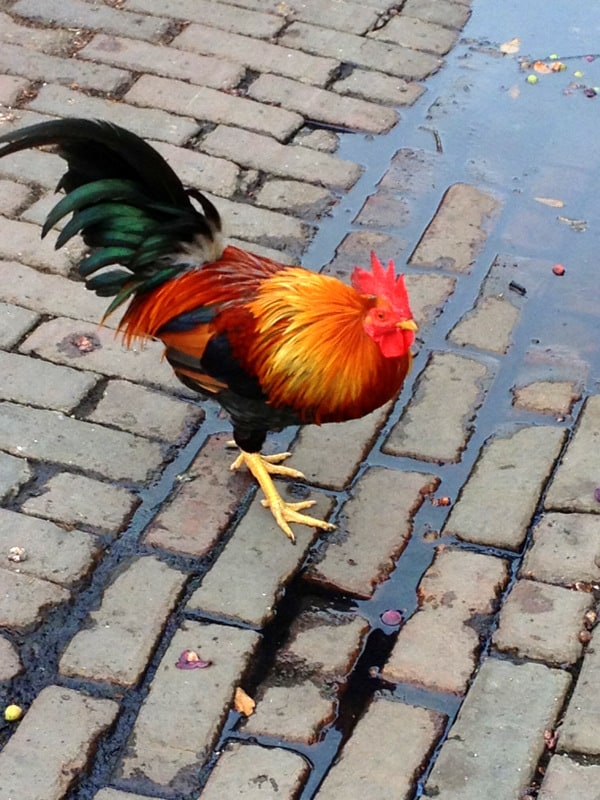
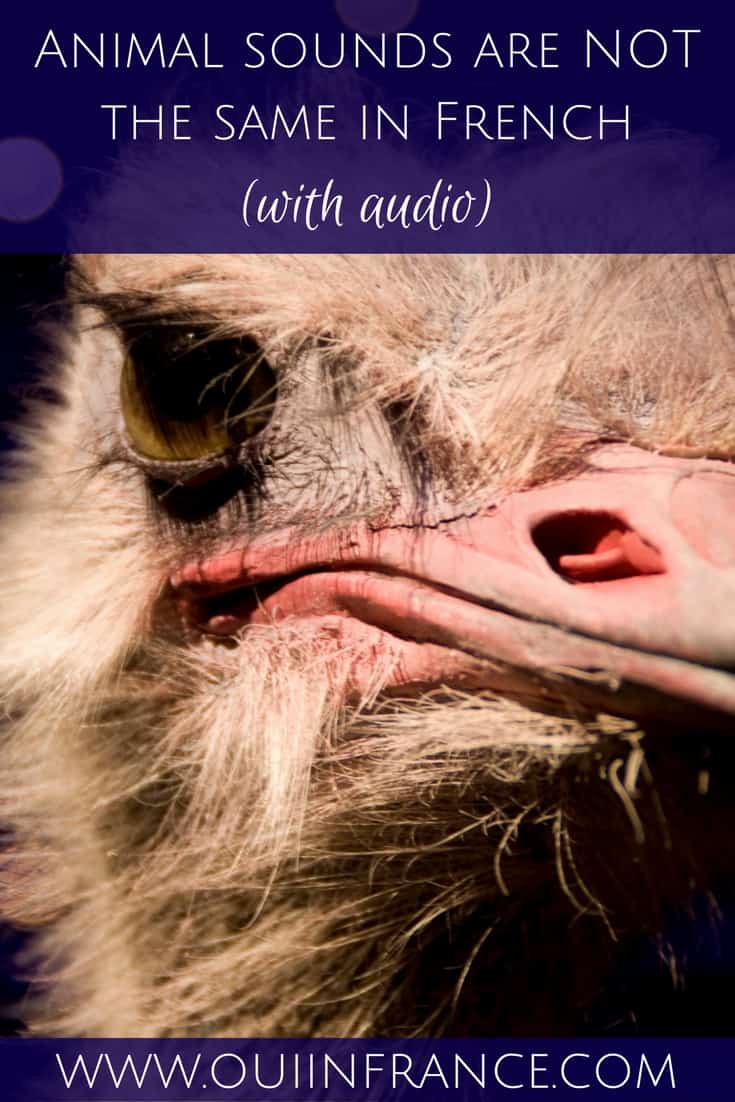


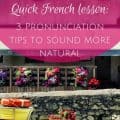
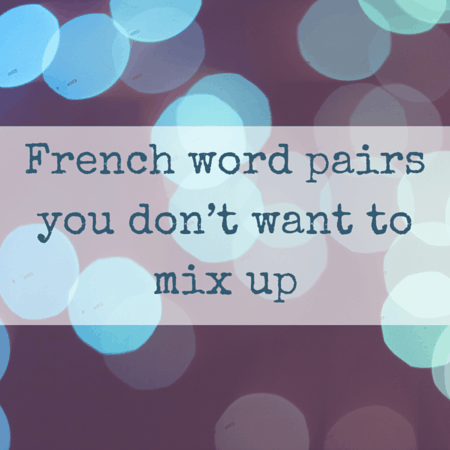

That is too funny. You know where I first learned that Europeans and Americans have different sounds for animals? An episode of Family Guy.
Haha, gotta love that show!
I’ve never given this any thought, but I already knew on some level. I’m bilingual and it’s the same with English and Spanish. For example, the bird. In English, we say chirp chirp or tweet tweet, as you said, and in Spanish, we say pio pio, much like the French. It’s the same with duck. Perhaps it’s because they’re both Romance languages, but I would never have guessed those similarities.
Makes sense! French and Spanish kids can go to the zoo together just fine. 😉
Diane,
You have done a really good job with your blog! I first noticed animal sounds were different when I was doing a study abroad in Italy. I was living with a host family that had two young boys. I was looking at one of their books and to my amazement, found that the animals were speaking Italian! hahaha. I am currently doing the TAPIF program in Nice and was trying to explain this phenomenon to some other assistants who didn’t believe me! lol I think your blog will help!
Cheers
Thanks so much, Kayla! Really appreciate that and so happy you found the post useful. The duck sound was the one that clued me in that French animal sounds were different. Don’t all ducks go quack quack? Nope! How are you enjoying the TAPIF program? I did it in 09-10 in Val D’Oise and not sure if it’s better run now? When I did it some people had great, organized schools and others were a mess. Hope you have a wonderful New Year’s Eve and all the best in 2016!
My two indoor pet hens were asleep and when they heard the rooster they perked up and replied. Who know they there bilingual. Then again, their names are Yvette and Olivia La Fleur